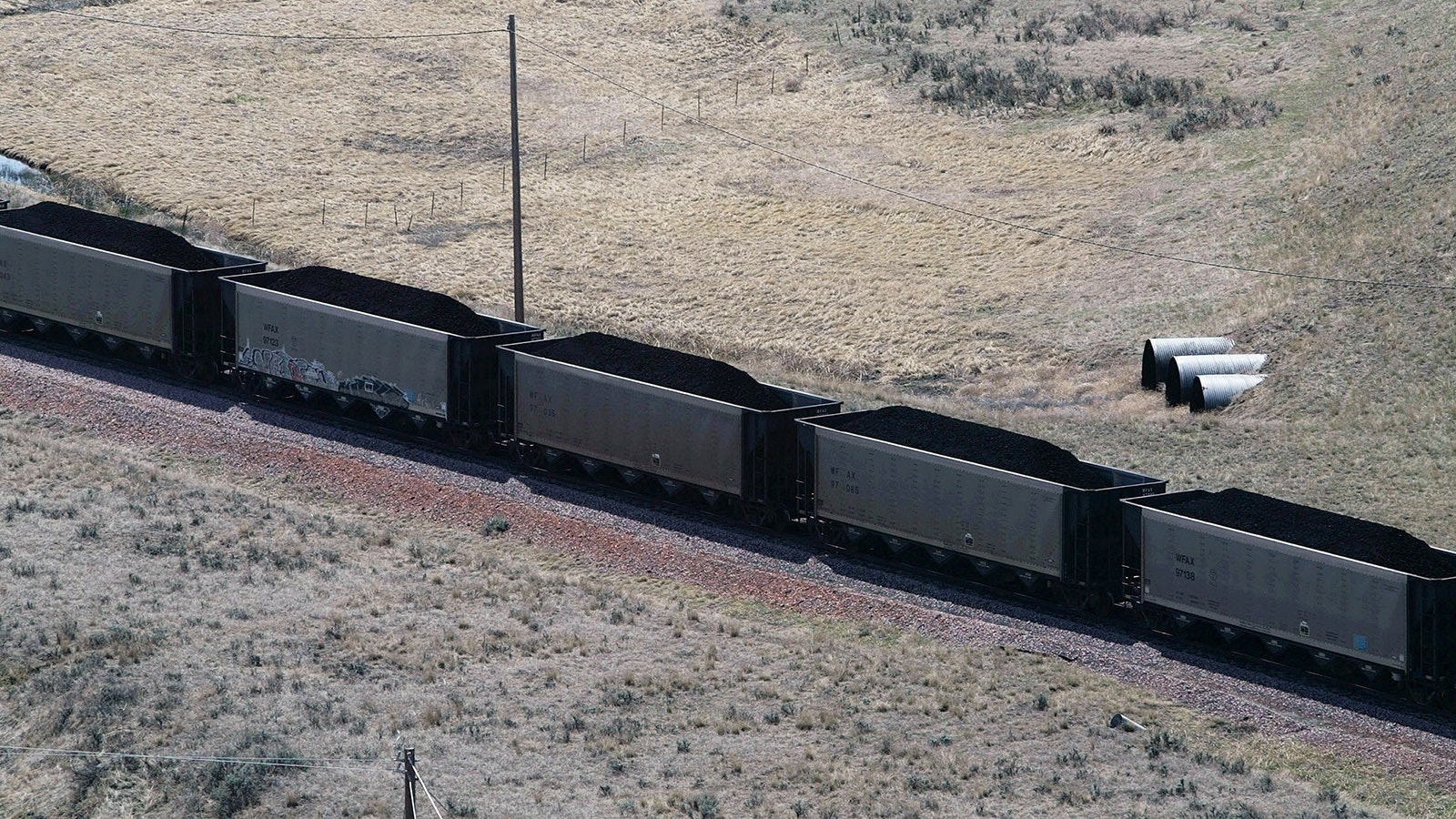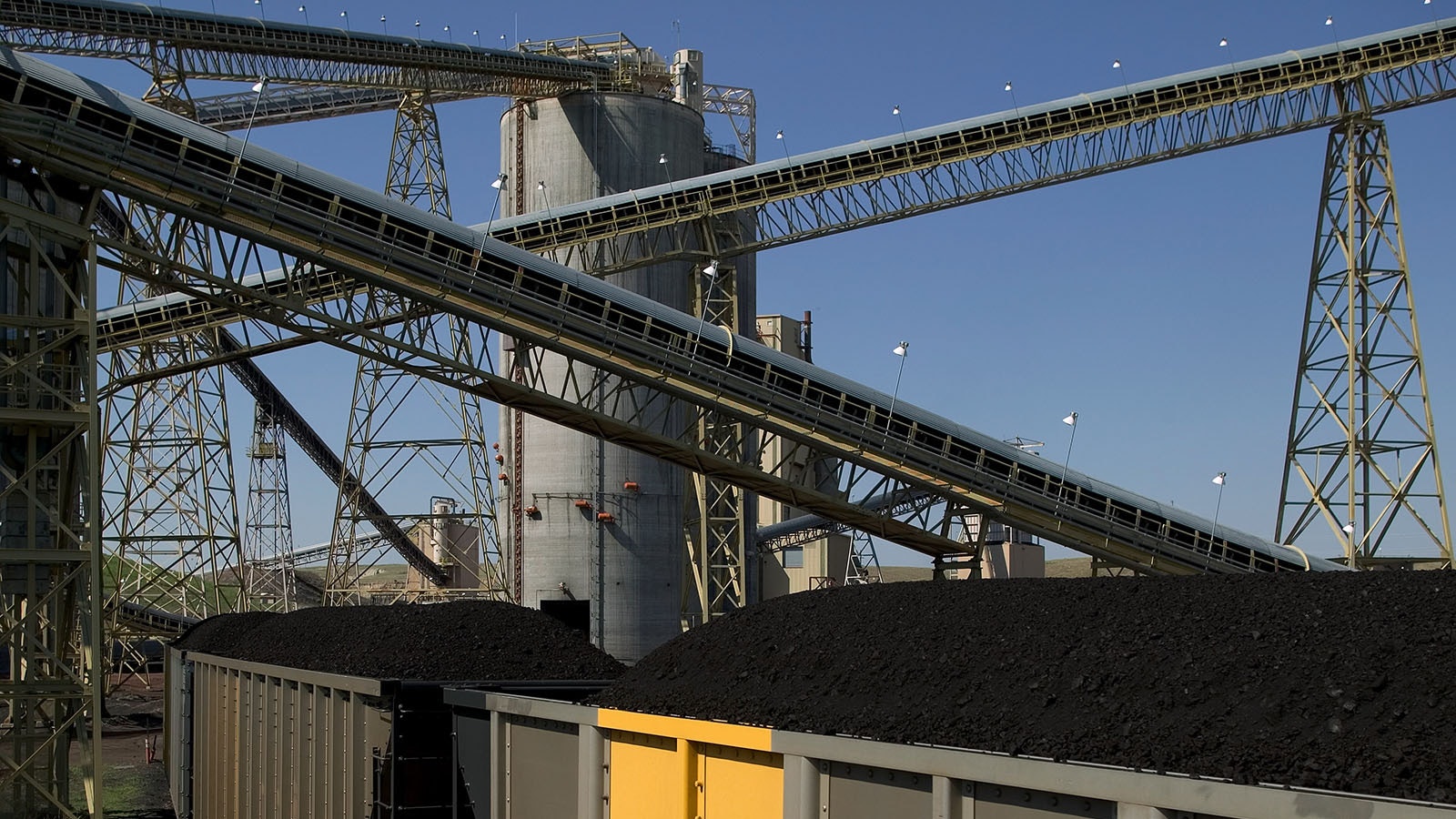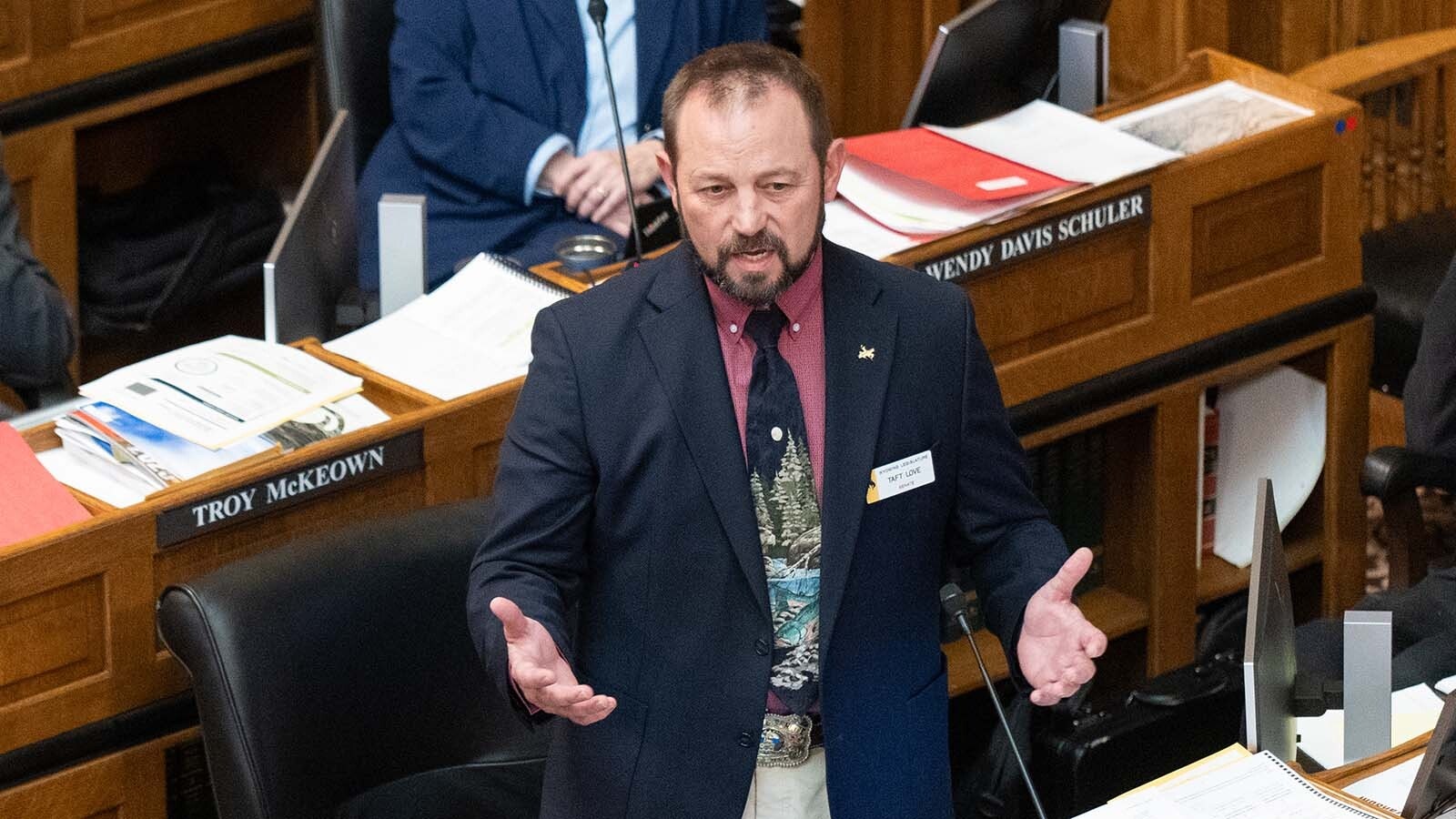Gov. Mark Gordon has an optimistic vision for the future of Wyoming’s coal, particularly in the southeastern Asia countries of Japan and Taiwan.
Fresh off a trip to the region, Gordon expressed an idealistic vision that Wyoming could become a main supplier for these countries if it can figure out a feasible export terminal from what he and President Donald Trump now call the Gulf of America.
Developing a real trade relationship for coal in southeast Asia would be huge for Wyoming. Although Wyoming has already made some modest steps in forging a trade relationship with Taiwan, establishing a formal coal export there or with Japan or South Korea would be significant, as almost no Wyoming coal is exported there today.
Gordon said officials there feel the same way about developing trade agreements with Wyoming, with conversations taking place about expanding not only to natural gas and carbon capture, but also to other sectors.
“Really very excited to make sure that Wyoming had an opportunity to really demonstrate what we have,” Gordon said.
The Coal Coast
Due to Trump’s ongoing trade war with China, Gordon said both Japan and Taiwan are interested in facilitating more energy trade with the United States and specifically investing in Gulf of America ports to cut shipping times by as much as half, Gordon said. He said public-private partnerships could also be brokered to help with this effort.
Travis Deti, executive director of the Wyoming Mining Association, said this proposal is “certainly realistic” considering the demand for this energy in southeast Asia and the fact that metallurgical coal is already being exported from there for the production of steel.
“We just have to figure out how we get it there,” Deti said.
Recently, Utah dedicated $50 million to studying this topic for its own coal export needs.
Although he acknowledges the chances of this working are a long shot, Gordon still sees it as a worthwhile endeavor.
Both Japan and Taiwan rely on an enormous amount of imported energy because of the limited size of their own resources. Taiwan is forecasting that 20% of its future energy needs will come from coal, Gordon said, and both are expressing a continued dedication to this fossil fuel.
Wyoming’s coal industry has long promoted the coal that comes out of the Powder River Basin as much cleaner than coal that comes from other countries. Gordon said this blends well with Japan and Taiwan’s stated commitments of reducing pollution, by helping them reach their goals more quickly than they would from continuing to purchase their coal from closer sources like Australia and Indonesia.
“I do think that both countries have come to the realization that they can’t be 100% renewable,” he said. “They have to have dispatchable, dependable energy.”
Gordon’s meeting came on the heels of Trump’s executive order earlier this month to boost the nation’s coal supply. Although the short-term picture for coal in Wyoming may be improved, serious long-term questions still exist with the industry given its historical decline and recent local mine shutdowns.
Gordon said what this could lead to for coal mines like one in Kemmerer, is more production than what consumer demand requires, and more job insecurity.
“I don’t have any silver bullet for that right now, but I can tell you I’m rummaging around in my ammo box for it,” he said.

Natural Gas Too
Gordon said Wyoming could have a real opportunity to sell its natural gas and other products to Japan and Taiwan, which both aim to be carbon neutral by 2050.
“There’s a really willing partnership, because both Taiwan and Japan still have net zero goals,” he said. “They’re very anxious to put our gas in front of the gas they might get from their neighbors.”
He sees all parties as having a legitimate interest in developing a trade relationship for natural gas and said some written agreements may be made soon. Similar letters of intent with Alaska are already pending, Gordon said.
Alaska Wants In Too
Alaska could be a major competitor in Wyoming’s effort to provide natural gas to these countries as it’s currently looking at building its own liquefied natural gas export terminal near Anchorage.
Due to its location on the Pacific Ocean, Alaska has a natural advantage over Wyoming when it comes to its export potential, taking about 10 days to ship to Asia compared to the 40 days it would take Wyoming to ship through the Gulf Coast to Asia, Gordon said.
However, building this infrastructure could take Alaska some time and effort spent overcoming regulatory hurdles, which is where Gordon sees an opportunity for Wyoming to look south for a potentially quicker solution until Alaska comes on board.
“Taiwan and Japan need natural gas now,” he said. “They need the ability to meet their energy demand, which is an expanding market much like it is here in this country.”
He hopes that with additional investment in the Gulf Coast ports, Wyoming could cut its shipping time down to 20 days to Asia.
“This is not to deny Alaska future market,” Gordon said. “It is to say that we can get there sooner, and we’re very anxious to do that.”
Other export opportunities may also exist on the coasts of Mexico and Canada, Gordon said, but additional study needs to take place on how this would interact with potential tariffs.
Deti said some Montana coal is shipped out of Vancouver, British Columbia, but with the election of the Liberal Party there on Monday, the future of this export terminal could be in doubt, he said.
Although Gordon said he’d still love to see an export terminal develop on the west coast, the chances of that aren’t strong when considering the opposition from leaders of those states to building ports for fossil fuel production.
“Across the Pacific Coast, there’s an aggressive green wall the environmentalists in those states have put up,” Deti said.
Alaska likely wouldn’t be as much of a competitor for coal though, as it produces much less than Wyoming, Deti said. Also, its last coal port in operation shut down in 2024.
Alternative Energies
Gordon said there’s also interest in the region in Wyoming’s nuclear, trona, carbon capture and rare earth mineral capabilities.
On Tuesday, Wyoming signed a memorandum of understanding with Utah and Idaho expressing a dedication to nuclear energy and pursuing better energy cooperation.
“It really does feel like we have some consensus in the intermountain west on being able to get more of our energy, more of our technology and more of our IP out to the world,” Gordon said.
Although Japan and Taiwan have both put moratoriums on pursuing nuclear energy, Gordon said officials from both countries expressed interest in the small modular nuclear reactors and fuel being considered in Wyoming and said both countries are going to need some nuclear energy in their portfolios moving forward.
Tariff Dynamic
Trump has hit Japan with 24% tariffs on its exports to the U.S., although, like most of his levies, they have been paused until early July to allow room for negotiations. A 10% universal rate remains in place, as does a 25% duty on cars, a mainstay of Japan's export-heavy economy.
Gordon took the high road when discussing Trump’s tariffs on Wednesday although he admitted the Asian officials he met with are concerned about them. He sees a “great opportunity” for Wyoming and the U.S. to take advantage of the tariffs and expand its exports, as well as balancing Japan and Taiwan’s trade deficit by buying American energy, which he says will benefit both of those countries.
“I think there’s going to be some consequences we’re going to see but it’s also important to remember this is a whole new game,” he said. “I think we have some real real opportunity here that we should not worry about what’s in the past but really think about what is our future.”
Leo Wolfson can be reached at leo@cowboystatedaily.com.





